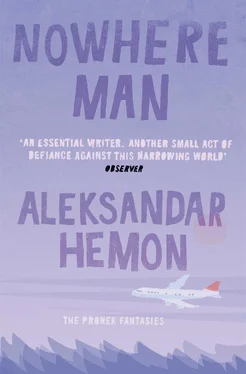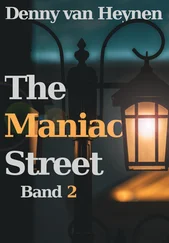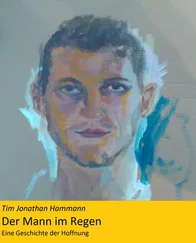This is the story that Evgenij Pick— Captain Pick — told to Russian ex-princesses and ex-baronesses and ex-nobodies earning their paltry living in Shanghai as prostitutes and taxi dancers, even dressmakers. They would listen to him, swooning, warm tears in their Russian eyes, stroking their new, local lap dog until they hurt it with their hands shriveled from the work they had never done before, the dog slipping off their lap. They would not even notice Captain Pick’s nimble hand crawling up their thighs, then deeper, much deeper, and he never paid them for anything.
To drunken Russian ex-officers, surviving in Shanghai as bodyguards and extortionists (or not surviving at all), prone to scorching their nostalgia with poisonously cheap vodka, he would tell about the saber given to him by his father, a Cossack colonel, on his deathbed. His father made him swear on the saber that he would defend Mother Russia’s honor until his last breath. It was with that very saber (resting now in a pawnshop, he said, waiting for better days) that he decapitated a Jewish Bolshevik, in Smolensk, in 1919. Sometimes he would use a watermelon to demonstrate how the head flew in a perfect arc (“rainbow-like”) and fell on the ground with a thud that implied hollowness. His audience would always enjoy the joke, ordering more vodka for Captain Pick. He would cut open the watermelon with his rosewood-handle knife, and they would gorge on the crimson insides, using their fingers, kissing each other after every downed glass of vodka. And he would keep them enraptured, dizzy with common memories and alcohol, telling them how the Germans caught him in 1914, and how he escaped — he just walked out of the prison, ordering the guards in a thunderous voice to open the gate and they had to open it, saluting him, because even in large numbers and heavily armed they were afraid of a real Russian. The Germans caught him ten more times, and he escaped ten more times — he would slam his hand against his chest and holler: “They thought I was the devil himself!” and the crowd would proudly guffaw, delighted that the devil is Russian, one of our own. Pick would then start singing, “Do not close your eyes, Mother Russia, for it is not time to sleep,” and they would weep, as they wept leaving Vladivostok. Not infrequently, a mob of wobbling Russian patriots would carry Pick on their shoulders to their favorite brothel or an opium den, where they would pool money to treat him with a cure, admittedly temporary, for his wounded Russian heart.
At the beginning, a few of them would have trouble remembering his being on the Pamyat. Nor could the officers from the units he claimed to have served in remember him serving with them. Some of them even recalled a man with the same face, albeit scarless, working for the Soviets in Harbin and Shanghai under a different name. But after a while his stories, told in minute, plausible detail, absorbed along with a China Sea of vodka, displaced their memories, and they started generating their own, new memories featuring trench brotherhood with Captain Pick, his doughty feats, and legendary drinking binges, from which some of them never recovered. Eventually, Pick— Captain Pick — became the dearest brother of every true Russian in Shanghai.
The likely story, we have to say, is somewhat different. Evgenij Pick is born as Evgenij Mihailovich Kojevnikoff, in Kiev, in September 1900, son of a Cossack army colonel and a raped Jewish mother, who dies giving him birth. His father takes some care of him, paying an unmarried, crazy aunt to bring him up, until Papa gambles away all his money and kills himself, leaving Pick nothing but embarrassing debts and the unpaid aunt’s fury, conveyed through a beating with a broom handle. There is no record of the saber whatsoever. Apart from the broom-induced anguish following his father’s demise, little is remembered about Pick’s childhood, boyhood, or youth. After a few blank years, we find him serving in the Russian army in 1917, until he is captured by the Germans, but only once. We do not know when and indeed if he did escape, but in the fall of 1917, he is in Sankt Petersburg, caught up in the Revolution. It seems that the revolutionary fervor, not to mention numerous opportunities for pilfering and plundering, excited him enough to become a revolutionary. His duty becomes the duty of a political commissar, his job is to deliver speeches on a rich selection of injustices, and when he raises his arm and points in the general direction of bloodthirsty capitalist bloodsuckers, his audiences are always eager to go there, however distant and dangerous there may be.
His good revolutionary work allows him to study in Moscow, from 1919 to 1922, at the Military Academy and, simultaneously at the Academy for Music and Drama. After graduation he is said to have worked as an assistant military attaché in the Soviet embassies in Afghanistan and Turkey — jobs whose uneventfulness would be unbearable, were it not for the abundant availability of first-class opium.
In 1925, he arrives in Shanghai, via the Trans-Siberian railway, Vladivostok, and Harbin. His official duty is as an assistant to the Soviet military mission there — that is, a spy — working undercover as a businessman, selling advertising space in Russian papers. He really serves the Comintern, building networks, acquiring acquaintances who can provide fruitful information, some of which he fails to share with his comrades, but rather hoards it for the day he might need it.
And the day arrives in 1927, when, according to Wasserstein, he turns coat and furnishes the British intelligence in Shanghai with a carefully assembled collection of pertinent information, embellished with fantastic sub-narratives of ubiquitous Comintern conspiracies in China and — why stop there? — the world at large. All of it is delivered in a reasonable, measured, yet mesmerizing tone — all the accents are in the right places, and the ephemera (useless characters, pointless details, frequent digressions regarding his own unremarkable, woeful self) is effectively scattered throughout Pick’s narrative, providing the inevitable randomness of common existence, the sloppiness necessary for the illusion of a real, uncontrollable life. His briefers, all from good families and universally educated at elite British universities — evidently intellectually superior to an effusive Russian vagrant — cannot have enough of his stories. They promptly and passionately send Pick’s confession to the Foreign Office, followed by a note from the British ambassador, Sir William Senson, saying that “while [the accuracy of Pick’s information cannot be guaranteed, it has the ring of truth.”
The ring of truth is a golden one, it seems, for with the generous British reward and the profits from small but lucrative deals with his acquaintances Captain Pick is able to open his own theater in Shanghai. The theater has the ambitious name of the Far Eastern Grand Opera, and he is the impresario, stage manager, opera singer, ballet dancer, and its star actor. Let it be noted that his stage name, ever present on the glamorous marquee of his theater, is Eugene Hovans.
It is on the Grand Opera stage that Pick/Hovans performs his greatest role — the role of Chichikoff in Gogol’s Dead Souls. In Hovans’s rendition, Chichikoff becomes a Moses, leading the spiritless, soul-dead people of Russia to the promised land. The culmination of the performance was Chichikoff’s troika speech, inevitably resulting in women pulling their nicely combed and coiled hair off their heads in tufts, and men pulling out their guns and threatening to shoot themselves, right there, the devil take it all, enough of this misery. “Ah, you horses, horses — what horses!” vociferated Hovans, thumping his chest with his fist, as if intent on breaking it open and taking his heart out to exhibit its purity to the audience. “Your manes are whirlwinds! And are your veins not tingling like a quick ear? Descending from above you have caught the note of the familiar song; and at once, in unison, you strain your chests of bronze [chest thumping] and, with your hooves barely skimming the earth, you are transformed into arrows, into straight lines winging through the air, and on you rush under divine inspiration. . Russia, where are you flying? Answer me! [sobs, hair-pulling, revolvers cocked, etc.] There is no answer.”
Читать дальше












